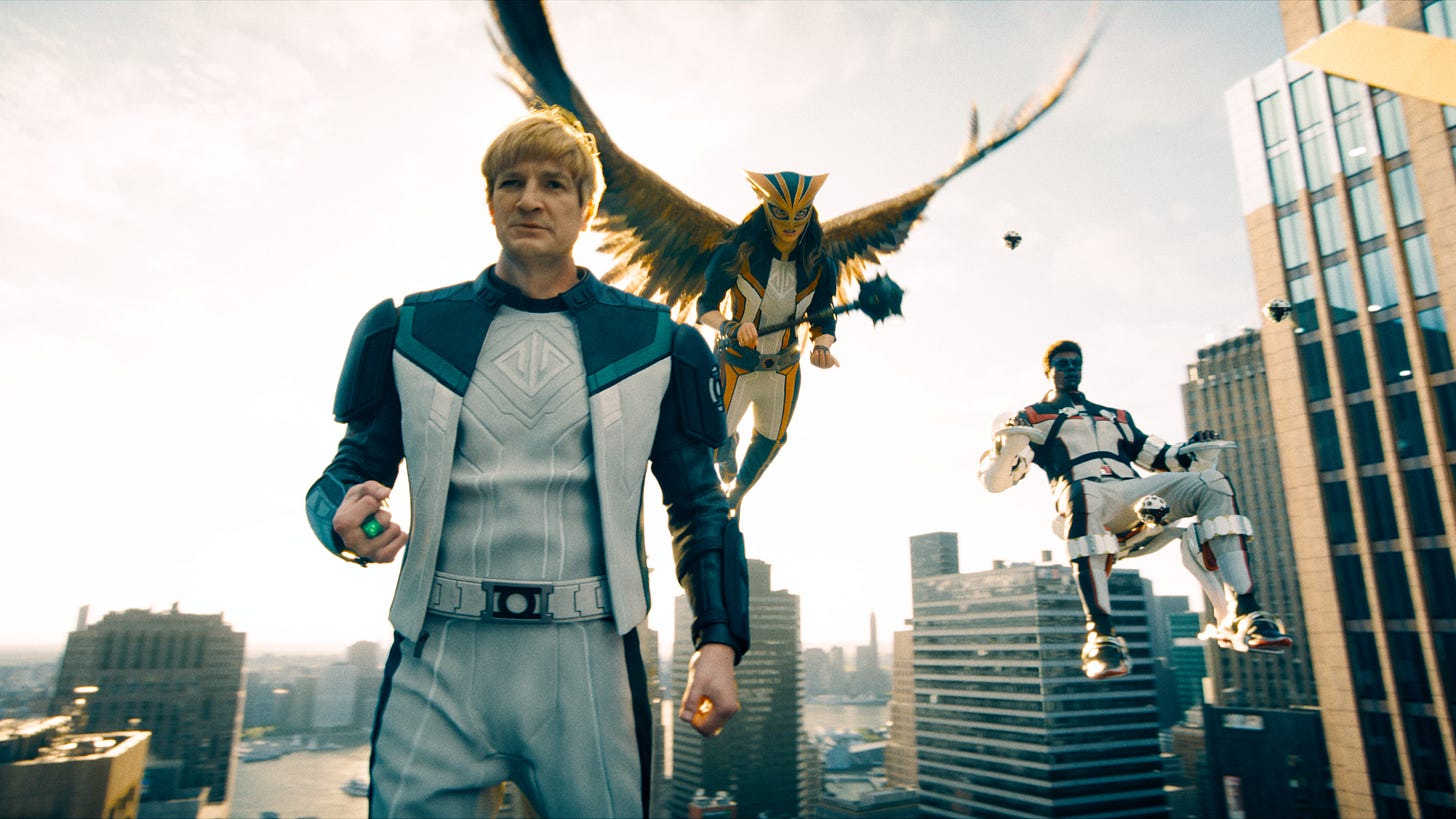June Attendance Was Only 55% of Average for the Month a Decade Ago - Will July Improve?
The early year momentum ground to a halt at the worst possible time.
‘Superman’ (Warner Bros.)
After two months in which U.S./Canada box office rose about 90% over the same period in 2024, leading to a year to date 24% improvement, June crashed. By every possible measure it was a disappointing month, despite positive results from a handful of films led by “How to Train Your Dragon.” (Universal).
Our projection for the month already suggested a fall off. We gave it a slightly less than 50/50 shot at hitting $1 billion. Instead, the result was closer to $850 million.
The year to date fell to a 15% improvement, still good but falling. But even without adjusting for higher ticket prices, the total was the lowest for the month (usually one of the three best of a year) than any since 2001, excepting 2020-2021 when Covid struck.
It gets worse. Adjusting to a conservative estimate of $11.31 for an average ticket, attendance in theaters for June came to a miserable 55% of the average between 2010-2019. That decade saw June’s grosses, adjusted, total between $1.333 and $1.783 billion. Unadjusted, the worst was $1.007 billion. Adjusted, June in that period averaged $1.519 billion.
The around $850 million last month comes to 55% of that level. That’s disastrous, irrespective of the success of some individual films.
Reasons why include:
#1 for the month “Dragon” grossed just over $200 million, way low for any best of this particular month. “Inside Out 2,” “Spider-Man 3,” and “Top Gun: Maverick” the previous three years all led with $300 million or more.
Though “28 Years Later” (Sony) and “F1: The Movie” (WB) opened at or above expectations, most other wide releases disappointed. “Ballerine” (Lionsgate), “Elio” (Disney), and “M3GAN 2.0” (Universal) combined grossed about $1oo million during the month, far less than hoped.
Holdovers, led by “Lilo & Stitch” (Disney) and to a lesser extent “Mission: Impossible - The Final Reckoning” (Paramount) helped keep things from being worse.
A big problem - there were only seven wide releases during this prime month. Before 2020, 11 or more were common. The studio production cutback is a major contributor to declining grosses.
Seven is one more than July’s lineup. This month is top heavy with three major franchise entries. “Jurassic World Rebirth” (Universal) opened Wednesday (no previews because of bargain Tuesday) to an impressive $30 million, possibly $130 million for five days. That’s a positive start.
But with a weak B Cinemascore and facing “Superman” next weekend, it might not get to more than double that total, low end for the franchise. The “Superman” reboot is promising, with a good shot at over $300 million during the month. Add the Marvel “The Fantastic Four: First Steps” on July 25 (one week during the month) possibly approaching $200 million for its first week, that’s a conservative $800 million likely banked.
Among the remaining three wide releases, two July 18 titles - “Smurfs” (Paramount) and “I Know What You Did Last Summer” (Sony) could combine to add $100 million. “Eddington” (A24) same date is not expected to exceed $20 million.
Holdovers led by “F1” could add another $200 million, with $50 million from other new releases. That totals under $1.2 billion.
That would put it slightly above last year ($1.15 billion), below the two previous. As for historical, still weak. Adjusted, 2010-2019 saw July have an average of almost $1.7 billion. $1.2 billion would be 70%. That’s an improvement over June, but remains as an indication of how big a shortfall movie theater attendance remains.




Fewer releases = less attendance. How do we fix that?
I wonder if you might be underestimating Rebirth’s legs since even Dominion’s first five days (to facilitate comparison) only accounted for 45% of its total even with Maverick eating its lunch; Dominion’s A- Cinemascore would seem to suggest they’re incomparable, but that was boosted by children raving about it & the PostTrak (3.5 stars, 73% positive, 57% definite recommend) was otherwise more similar to a B-range Cinemascore.